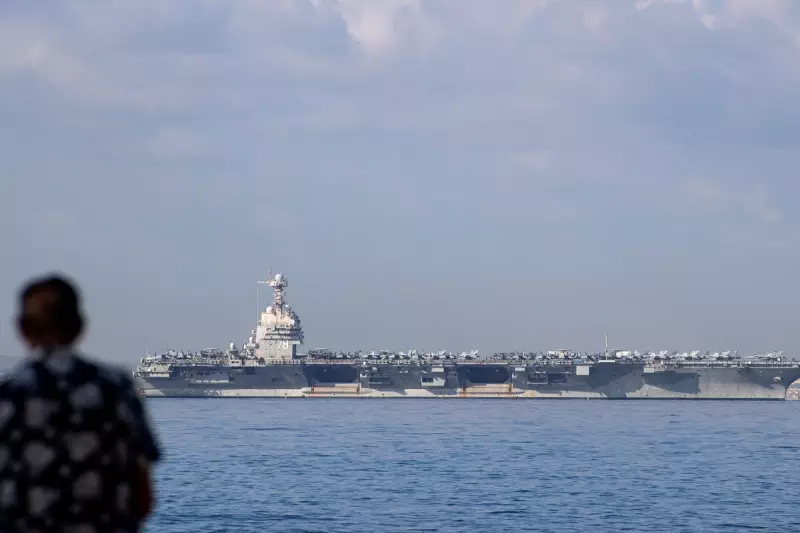
The United States has deployed its most sophisticated warship, the nuclear-powered USS Gerald R. Ford, to the Caribbean Sea, marking a significant escalation in military presence that experts believe is aimed at pressuring Venezuelan leader Nicolás Maduro.
A Formidable Naval Presence
Arriving on Sunday, the Ford's deployment completes the largest buildup of American firepower in the region for generations. This immense force, dubbed "Operation Southern Spear" by Defense Secretary Pete Hegseth, now comprises approximately 12,000 troops across nearly a dozen Navy ships.
The carrier strike group, which includes squadrons of fighter jets and guided-missile destroyers, transited the Anegada Passage near the British Virgin Islands. Rear Adm. Paul Lanzilotta, commanding the group, stated its mission is to "protect our nation’s security and prosperity against narco-terrorism in the Western Hemisphere."
The Stakes for Venezuela and Regional Security
While the Trump administration insists this naval buildup is solely focused on interdicting drug shipments, critics view it as a clear intimidation tactic against the government of Nicolás Maduro. The US does not recognise Maduro as Venezuela's legitimate leader, with Secretary of State Marco Rubio characterising the government as a "transshipment organisation" that cooperates with drug traffickers.
Maduro, who faces US charges of narcoterrorism, has accused the American government of fabricating a war against him. In response, Venezuela has initiated a "massive" mobilisation of troops and civilians to defend against potential US attacks.
Expert Analysis and Regional Anxiety
The deployment of the 100,000-ton carrier, capable of launching strikes deep inside another country, has sparked intense debate. Some security analysts question its suitability for combating drug cartels, suggesting its primary role is one of deterrence and signalling.
Elizabeth Dickinson, senior analyst for the Andes region at the International Crisis Group, captured the prevailing mood: "This is the anchor of what it means to have U.S. military power once again in Latin America. And it has raised a lot of anxieties in Venezuela but also throughout the region. I think everyone is watching this with sort of bated breath to see just how willing the U.S. is to really use military force."
The situation remains volatile, with the international community closely monitoring whether this show of force will remain a counterdrug operation or evolve into a more direct confrontation.





